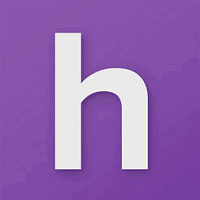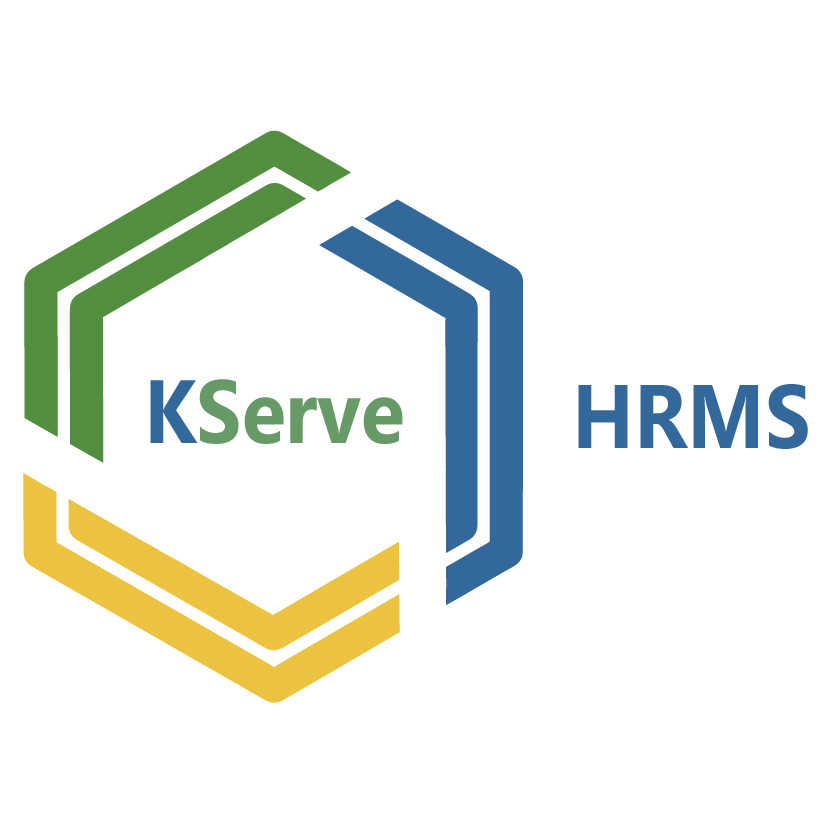Description

Cornerstone HR

Homebase
Comprehensive Overview: Cornerstone HR vs Homebase
Cornerstone HR and Homebase are human resource management solutions designed to cater to different aspects of workforce management, each with its unique features, target markets, and strengths.
a) Primary Functions and Target Markets
Cornerstone HR:
-
Primary Functions:
- Cornerstone HR is part of the larger suite of solutions offered by Cornerstone OnDemand, known for its comprehensive cloud-based people development solutions.
- The platform focuses on core HR functions such as employee data management, compliance and reporting, benefits administration, and organizational charts.
- Offers integrations with other Cornerstone solutions like talent management, learning management, and performance management.
- Supports global HR needs with localized features for multinational organizations.
-
Target Markets:
- Primarily targets medium to large enterprises, specifically those operating on a global scale.
- Suitable for organizations looking for a unified talent management and HR system.
Homebase:
-
Primary Functions:
- Homebase is centered around simplifying payroll, scheduling, time tracking, and team communication for small to medium-sized businesses.
- Includes features like employee scheduling, time clocks, shift swapping, labor cost management, and compliance tools.
- Offers mobile app functionality to facilitate on-the-go management and team collaboration.
-
Target Markets:
- Targets small to medium-sized businesses (SMBs), particularly in the retail, hospitality, and service industries.
- Designed for businesses with shift-based workforces requiring flexible scheduling and communication tools.
b) Market Share and User Base
-
Cornerstone HR:
- Holds a stronger presence among large enterprises due to its capabilities in integrating with broader talent and learning management systems.
- Its market share is significant in the globalized corporate sector, but specifics vary as HR technology solutions often compete in overlapping markets.
- User base consists mainly of larger organizations that need robust HR functionalities with an emphasis on global workforce management.
-
Homebase:
- Widely adopted by small and medium-sized businesses in the United States. It's known for addressing the specific needs of businesses with hourly workers.
- The platform is popular for its ease of use and affordability, making it accessible to a wide range of smaller businesses.
- Generally has a larger number of individual business users compared to Cornerstone HR, but those businesses are typically smaller in size.
c) Key Differentiating Factors
-
Complexity and Range of Features:
- Cornerstone HR is part of a broader ecosystem that includes talent and learning management, offering a complete suite for larger organizations. It’s more complex with broader capabilities in addressing global HR challenges.
- Homebase is more streamlined, focusing specifically on payroll, time tracking, and scheduling, which makes it easier to use for small business owners but less comprehensive for large enterprises.
-
Target Audience and Scalability:
- Cornerstone HR is built to scale with large organizations, offering extensive customization and integration capabilities suited for global operations.
- Homebase is tailored for SMBs, providing essential HR functionalities that don’t require the complexity and customization needed by larger enterprises.
-
Pricing and Accessibility:
- Homebase offers a free tier with basic functionalities, appealing to small businesses with limited budgets, while Cornerstone HR typically involves more substantial investments due to its extensive capabilities and enterprise focus.
In summary, Cornerstone HR and Homebase cater to different segments of the market. Cornerstone HR is more suited to large enterprises requiring comprehensive HR and talent management tools, while Homebase provides essential workforce management solutions for small to medium-sized businesses, particularly in industries with a significant number of hourly workers.
Contact Info

Year founded :
2010
Not Available
Not Available
Australia
Not Available

Year founded :
1986
Not Available
Not Available
United States
Not Available
Feature Similarity Breakdown: Cornerstone HR, Homebase
Cornerstone HR and Homebase are both human resource management systems, but they cater to slightly different needs and user bases. Let's break down their similarities and differences:
a) Core Features in Common
Both Cornerstone HR and Homebase offer a set of core HR features that are essential for managing employee information and streamlining HR processes. These common features typically include:
-
Employee Records Management: Both systems allow for the storage and management of employee information such as personal details, employment history, and job details.
-
Time and Attendance: Each platform has functionality for tracking employee hours, managing time-off requests, and scheduling shifts.
-
Reporting and Analytics: Both provide tools for generating reports and analytics to gain insights into workforce data and HR metrics.
-
Compliance Management: Helping businesses ensure that they are compliant with employment laws and regulations is a feature in both products.
-
Mobile Access: Both Cornerstone HR and Homebase offer mobile apps or mobile-friendly access to their platforms, enabling employees and managers to access information on the go.
b) User Interface Comparison
-
Cornerstone HR: Known for its more comprehensive and customizable user interface aimed at larger enterprises. The interface can be robust and feature-rich, which may involve a steeper learning curve for new users. It offers a dashboard that can be tailored to meet specific HR needs, with various widgets and reports.
-
Homebase: Designed with small to medium-sized businesses in mind, Homebase offers a more straightforward and user-friendly interface. The focus is often on simplicity and ease of use, which means users can typically get up and running more quickly without extensive training. The navigation is intuitive, with a clear emphasis on core functionalities like scheduling and communication.
c) Unique Features
-
Cornerstone HR:
- Learning and Development Tools: One of Cornerstone's standout features is its learning management system (LMS) capabilities, which include training modules and career development planning.
- Performance Management: More advanced tools for performance reviews, goal setting, and feedback processes compared to Homebase.
- Integration Capabilities: Larger organizations may find Cornerstone's ability to integrate with other enterprise systems (e.g., ERP) beneficial.
-
Homebase:
- Shift Scheduling and Team Communication: Homebase excels in providing small businesses with effective scheduling tools that are easy to use, as well as built-in team messaging functionality to enhance communication.
- Payroll Integration: While both systems offer payroll functionalities, Homebase integrates seamlessly with several payroll systems specifically popular among small businesses.
- Hiring Tools: Homebase offers straightforward recruiting and onboarding tools, which are particularly useful for businesses that experience high turnover and need to hire quickly.
Each platform has strengths that cater to different business sizes and needs. Cornerstone is well-suited for larger enterprises looking for a comprehensive HR suite with strong development tools, while Homebase provides small to medium businesses with a simple, efficient solution for core HR tasks and team management.
Features

Not Available

Not Available
Best Fit Use Cases: Cornerstone HR, Homebase
Cornerstone HR and Homebase serve distinct purposes within the realm of human resource management and workforce management. Here’s a detailed look into their best-fit use cases and how they cater to different industries and company sizes:
a) Cornerstone HR Best Fit Use Cases:
- Types of Businesses or Projects:
- Large Enterprises and Corporations: Cornerstone HR is particularly suited for large organizations that require robust HR solutions capable of handling complex HR functions such as talent management, learning and development, succession planning, and performance management.
- Global Organizations: With its capability to manage a global workforce, Cornerstone HR is ideal for companies with operations in multiple countries needing centralized HR operations with localization features.
- Industries with Extensive Compliance Needs: Businesses in industries such as finance, healthcare, and manufacturing that require strict compliance management can benefit from Cornerstone’s ability to integrate compliance with core HR functions.
b) Homebase Preferred Use Scenarios:
- Types of Businesses or Projects:
- Small to Medium-Sized Businesses (SMBs): Homebase is well-suited for smaller operations such as local retail stores, restaurants, and service-oriented businesses that need straightforward scheduling, time tracking, and basic HR functionalities.
- Shift-Based Business Models: Businesses that rely on shift-based employment, such as hospitality, food service, and customer service sectors, will find Homebase’s scheduling and time clock capabilities particularly beneficial.
d) Catering to Different Industry Verticals or Company Sizes:
-
Cornerstone HR:
- Enterprise-Level Customization: Because of its scalability and customization options, Cornerstone HR can cater to various industry needs, from pharmaceuticals to technology, by providing tailored solutions that address sector-specific challenges.
- Comprehensive Suite: The platform offers a comprehensive suite that is particularly valuable for organizations that need to integrate various functions such as HR, learning, and talent management under one umbrella.
-
Homebase:
- Ease of Use and Accessibility: Homebase is designed for ease of use, requiring minimal training, which is ideal for small businesses that may not have a dedicated HR department.
- Cost-Effective: It is a cost-effective solution aimed at businesses that need efficient basic HR management tools without the complexity or cost associated with larger, more comprehensive systems.
In summary, Cornerstone HR is best for larger organizations with complex HR needs and multiple layers of management, while Homebase is tailored for smaller businesses, particularly those relying on hourly and shift workers, needing simple and user-friendly workforce management tools.
Pricing

Pricing Not Available

Pricing Not Available
Metrics History
Metrics History
Comparing undefined across companies
Conclusion & Final Verdict: Cornerstone HR vs Homebase
To provide a comprehensive conclusion and verdict for Cornerstone HR and Homebase, let's address each part of your request separately:
a) Best Overall Value:
Best Overall Value: Homebase
Rationale: Homebase offers a compelling value proposition, especially for small to mid-sized businesses seeking a user-friendly and cost-effective solution. It includes essential HR functions like scheduling, time tracking, and communication tools that are adequate for many businesses. It also has a free tier, which can be very appealing for businesses with limited budgets.
b) Pros and Cons of Each Product:
Cornerstone HR:
-
Pros:
- Comprehensive HR Suite: Offers extensive HR solutions including talent management, learning, performance, and recruiting.
- Scalable: Suitable for larger organizations with complex HR needs.
- Advanced Analytics: Provides robust reporting and analytics capabilities for strategic decision-making.
-
Cons:
- Cost: Higher price point, which may not be feasible for smaller businesses.
- Complexity: The range of features may lead to a steeper learning curve and require dedicated HR personnel to manage effectively.
- Implementation Time: More extensive setup process compared to simpler tools.
Homebase:
-
Pros:
- Cost-Effective: Offers a free plan for basic needs, and affordable paid plans.
- User-Friendly: Easy to use with a clean interface, requiring minimal training to get started.
- Excellent for Scheduling and Time Tracking: Specializes in workforce management tasks such as scheduling, time and attendance tracking.
-
Cons:
- Limited HR Features: Lacks the breadth of features like recruiting and performance management compared to more comprehensive HR suites.
- Not Ideal for Large Enterprises: Primarily targeted at smaller businesses so it may not scale well for larger organizations with complex HR requirements.
- Basic Reporting: Offers basic analytics, which might not suffice for businesses needing in-depth data insights.
c) Recommendations:
For users trying to decide between Cornerstone HR and Homebase, here are some specific recommendations:
-
Assess Your Needs:
- If your organization requires a full-spectrum HR solution with capabilities beyond basic workforce management—such as learning and development or talent acquisition—Cornerstone HR is more suitable.
- For businesses primarily in need of efficient scheduling, time tracking, and team communication, and especially those with budget constraints, Homebase is an excellent choice.
-
Budget Considerations:
- Larger organizations with a more substantial budget who can afford and need advanced features should consider the investment in Cornerstone HR.
- Small to medium businesses seeking cost-effective solutions should explore Homebase, taking advantage of its free and low-cost features.
-
Scalability and Growth:
- Consider your organization's growth trajectory. If substantial growth is anticipated, and more complex HR operations might be required in the future, starting with Cornerstone HR may prevent the need for transitioning systems later.
- For businesses in stable sectors where rapid growth isn’t a focus, Homebase's features are often enough.
-
Trial and Pilot Programs:
- Both platforms offer demo versions or trial periods. Users should engage with these trials to better understand the functionalities and fit for their daily operational needs.
Ultimately, the choice between Cornerstone HR and Homebase hinges on your organization's size, complexity of HR needs, and budget constraints. Each platform brings unique strengths, and aligning these with business goals is crucial for deriving maximum value.
Add to compare
Add similar companies



